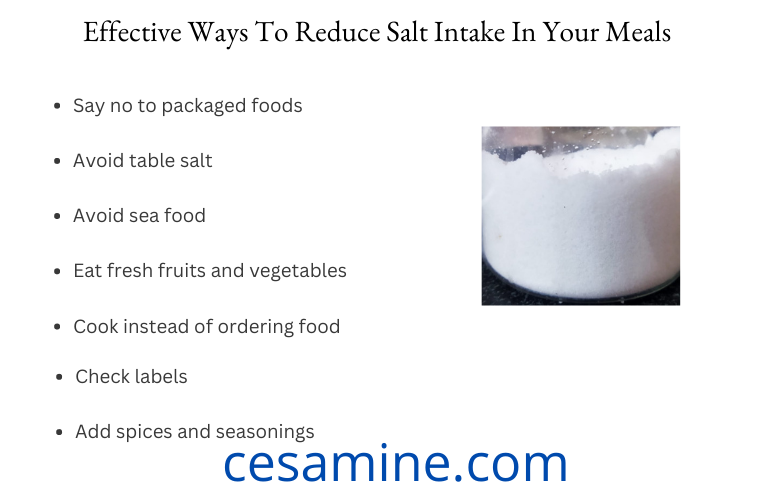Eating too much salt in your diet?
It can put you at risk of heart disease and stroke. Don’t know how to restrict? Follow these expert tips.
Many of us consume twice the recommended salt level mostly because we fail to restrict the amount of hidden salt in our namkeens, cookies, sandwiches, soups and all the other packaged products which has a lot of sodium in them
Salt is not just a great flavour enhancer but is also essential for nerve function, muscle function and maintaining the right balance of water and minerals. Yet too much of it can invite innumerable health troubles from high blood pressure, heart disease, stroke, calcium loss. Many of us consume twice the recommended salt level mostly because we fail to restrict the amount of hidden salt in our namkeens, cookies, sandwiches, soups and all the other packaged products which has a lot of sodium in them. Over a period of time, this excess salt can play havoc on your health. It is important to reduce salt intake for managing diseases like blood pressure and even kidney issues.
People who eat a lot of salt may report bloating issues more as kidneys start retaining more water to maintain water-sodium ratio which could lead to swelling in hands and feet. You may also feel thirstier. Restlessness, breathing difficulty, seizures, decreased urination are other side-effects of excess salt consumption.

HOW TO REDUCE SALT INTAKE
Reducing salt in your diet can prevent you from many health complications. Here are expert tips to reduce salt intake.
- Say no to packaged foods
“Cut down on buying stored and canned packaged foods containing high levels of sodium for presentation. Prefer no salt added labels,” says Dr. Jinal Patel, Dietitian, Apollo Spectra Hospital, Mumbai.
Priya Palan, Dietitian, Zen Multispeciality Hospital suggests going for whole processed foods over ready-to-eat packaged foods.
- Avoid table salt
Avoid sprinkling additional salt to your food and restrict the amount while cooking. You can also avoid adding salt wherever possible, for example in chappatis and rice, says Dr Patel.
- Avoid sea food
“Restrict salt water fishes and sea food to prevent excess sodium,” says Dr Patel.
Use potassium salts if the Dietitian permits in hypertension. Use of DASH diet (Dietary Approaches to Stop Hypertension) to prevent high blood pressure and its heart healthy.
- Eat fresh fruits and vegetables
Instead of buying canned and frozen foods from the supermarket shelves, eat fresh fruits and vegetables to restrict sodium intake, says Priya Palan.
- Cook instead of ordering food
Palan says one should cut down on take away parcels and prefer cooking similar food at home.
- Check labels
Be mindful of checking the food labels and ensure that whatever you are buying is low on sodium, says Dr Patel.
“Read and compare the sodium content of packaged food and eat salty foods in smaller portions,” says Palan.
- Add spices and seasonings
“Add spices or seasonings like garlic, onion powder, cumin, ginger, black pepper, coriander leaves, nutmeg, parsley, thyme, rosemary, dry mustard or dill, oregano, bayleaf, lime juice, amchur over salt,” says Palan.